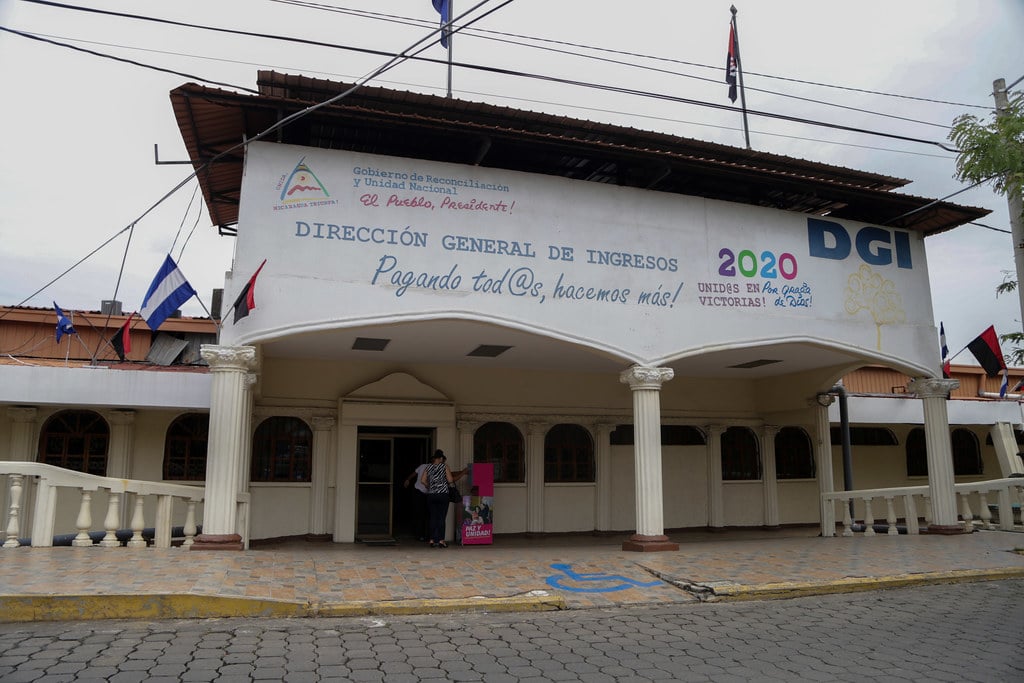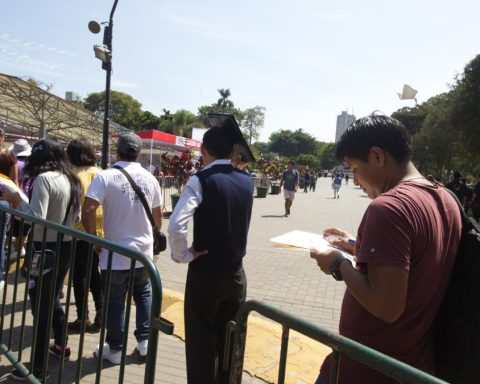The officials of the General Directorate of Revenue (DGI), in charge of applying the government policy of economic blackmail against companieshave shown that, for them, size does matter.
As of 2019, the DGI, together with the General Directorate of Customs Services (DGA), plus the complement of the Mayor’s Office of Managua, have been in front of fiscal harassment against private companies.
If they are big, the better!
The breaking of the alliance that the Administration of Daniel Ortega and Rosario Murillo had with the Superior Council of Private Enterprise (Cosep), was the signal to untie the hands of the DGI inspectors, and the gauges of the DGAwho from that moment were able to act with discretion that businessmen were trying to annul.
The manager of a chamber attached to Cosep told CONFIDENTIAL that the companies are not communicating this situation to their unions, and that they try to handle it directly, but in most cases they are unable to resolve it.
“We are all aware, because those affected comment on it with the rest as a way of sharing their experience, so that other businessmen take care of themselves,” said the manager.
When detailing what type of companies are the most affected, he said that “in this case, size does matter, they can be part of a transnational, or have support from a foreign country, perhaps with a current trade agreement, they are targeted. , because they know they can pay more”.
CONFIDENTIAL learned of the case of a company dedicated to the international trade of agricultural products, which was punished with a fine of around one million dollars.
“The argument they gave us is that ‘you pay very little taxes, and you have to pay more,’ which implies that it doesn’t matter what the law says,” said a source familiar with the details of this case.
In the end, the businessman negotiated until he achieved a discount of more than 80% of the imposed fine, for which he ended up paying less than a quarter of a million dollars.
“They send the inspectors to fine, and if they come with little, they send them to fine more,” said the source.
Be careful who you ask for favors
The manager cited above explains that what exists at this time is “a generalized, transversal complaint, due to the pressure exerted by the DGI, customs and the municipalities”, which materializes in visits and frequent company auditsto the point that “this becomes harassment,” he established.
This administrator considers that, for businessmen, at this time it is not possible to adhere to the legal framework “in coordination with the authorities, who should act responsibly, collaborating with the development of economic activities, but choose to act in an inquisitive manner,” he described. .
Rather than advocating a return to the ‘marriage’ that existed between the private sector and the Government, this source argues that public institutions should collaborate to correct “adequately, rather than inquisitively”, what the companies are doing wrong.
The problem is that “in Nicaragua, everything is done in order to maximize collection, so there is no room to collaborate to correct it,” he insisted.
The director points out how, before 2018, the private sector told the State that the answer to increase collections was not to change the law, but to be more efficient in collecting taxes.
Self-critically, he admits that “the State let many situations pass”, referring to ‘favors’ that the companies requested, those that were granted by a Government that needed to maintain a perception of facilitation.
“The companies should have always asked that everything be done in accordance with the law, and with the support of a written resolution stating what the agreement or law was, on which the public servant had relied to access what that the company asked of him, so that they were not decisions of fact, but of law”, he reflected.
Instead, the businessman received a favor, and the Government wrote it down to collect it when needed, or to punish what they now consider ‘treason’, including companies that are partially or totally owned by their ‘friends’.
The source points out that if there were taxes that were not collected, it was not due to inefficiency, but rather that everything responded to a political decision.
“They knew those situations, but they let them pass. What we see today is that the Government became more ‘efficient’ to collect more, but also for revenge against certain companies and businessmen. Why so far they are efficient to collect? ”, He questioned.
Hands up
A few months ago, the management team of the local headquarters of a foreign company based in Nicaragua for several years received an unexpected surprise: they had been fined more than a million dollars. Although their economic power allows them to face a payment of that size, “that was not in their plans or their budgets,” says a source familiar with the case.
After overcoming the initial surprise, and after consulting with its parent company, the company decided to negotiate with the DGI, while looking for the money to pay, whether they have to pay one hundred percent of the fine, or they can get a discount, as others have done.
Although they could seek the support of the business chamber to which they are associated, or ask for help from the diplomats of the embassy that represents the country where the initial capital comes from, they decided that “they would not fight with the Government, because it is not convenient for them and they also cannot close their operation and just walk away,” the source said.
His opinion is that the Ortega-Murillo Administration acts in this way “to oxygenate its finances and cover expenses, given the reduction in its tax collections.”
If this company, which due to its origin and size could feel comfortable when fighting against the government, chooses to fight in silence, smaller companies that depend on government contracts “prefer to keep everything quiet,” said an entrepreneur who years ago served as a director of a chamber attached to Cosep.
“Among the few that they comment on, is that they ask for documentation arbitrarily, which is not part of the requirements that can be demanded under the law, mixing the situation of the natural person with the legal person they represent,” he said.
Although the regulations indicate that public officials have no powers other than those indicated by the law itself, and that citizens are not obliged to do what the law does not mandate, in the end, they feel free to ask for what they want. want, and these are forced to provide them.
The main fear is that, if they refuse to deliver this documentation, the DGI will block their access to the Electronic Tax Window (VET), which may prevent them from obtaining any document or solvency, necessary to be paid for a job or service. borrowed, make an import, or perform a customs clearance.
“They can still send an audit from the Nicaraguan Social Security Institute, or from the mayor’s offices, and any of them can ask you for personal documents that have nothing to do with the company’s assets,” he said.
“We are unarmed,” says the entrepreneur, considering that “the management capacity of the union we are in is minimal, and there is a fear that the government-related media will publish our cases to damage our image.”
Appeals die in TATA, CSJ, and Treasury
The owner of a company with decades in the Nicaraguan market, which is currently one of the leaders in the leisure industry, accumulates more than five years of legal steps to try to weather the payment of a fine that has multiplied by more than five times, to around $150,000 today.
Although this repair was imposed at the time that Cosep had the right to participate in the formation of the laws, the business owned by this businessman was punished because “they said that we were not withholding income tax from clients, and that we were putting as deductibles , expenses that were not. We were fined for an administrative ruling,” he alleged.
In that scenario, his first option was to appeal to the Customs and Tax Administrative Court (TATA), which ruled against him. Then he brought the case before the Supreme Court of Justice (SCJ)… “which also ruled against us,” he lamented.
After years of litigation, of expenses in lawyers; of asking friends to manage on his behalf to solve the problem, the only thing certain is that nothing benefited him happened. Now the initial debt has multiplied to around $150,000, which he doesn’t own, but hopes to pay off with property.
Although the State experts valued the property in a sum that exceeds the amount of the debt, since there is a judgment accepting it in payment, for some reason they do not accept it, so while the debt is still active “they do not give us the solvency, and I cannot sell to the Government, nor do other businesses,” he assured.
In similar circumstances is a company in the food sector, whose general manager declares that he feels that they have “with a gun to his head”, since he has been disputing the results of an audit that they did almost five years ago for five years. .
The result was an objection for an amount greater than a quarter of a million dollars, which they appealed to the DGI, but “you can never beat those: in a few days they ratified the decision,” he said. Although they later took the case to the Ministry of Finance and the TATA, the result is the same: they must pay.

















